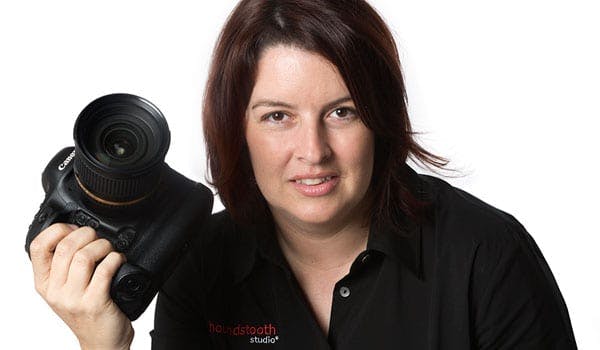On the face of it, it seems very unusual to go from a 14-year career in the police force, to life as an animal and wildlife photographer. But the passion and fearless determination in Alex Cearns’ voice is palpable.
The pet market has a reputation for being a money-spinner. There’s often no-limit to the depth of customers’ pockets when it comes to their beloved pooch or kitty.
However it’s also a crowded market. In an industry where diamanté collars and porcelain dog bowls are par for the course, a product or service has to be special to stand out from the crowd.
“Pet photography is quite competitive. There are a lot of pet photographers out there in the market – and to stand out amongst them, and to elevate our brand, has been quite hard work. With the advances in technology and digital cameras, anyone can take pictures – but where we separate ourselves is that our photos are magazine style and quality,” Cearns says.
“I also will photograph any pet, regardless of its level of training, or if it’s shown aggression, or if its terrified of leaving the house – I guarantee to my clients that I will still get the highest level quality of pictures. And that’s due to the ongoing training and learning I do in relation to body language and relating to animals.”
What started out as a hobby developed into a labour of love, and now into Houndstooth Studios in Perth, well known in the industry for thoughtful studio portraits of pets.
With a raft of accolades under her belt, as well as being a finalist in this years’ Telstra Women’s Business Awards, Cearns has silenced any naysayers who said there wasn’t space for a newcomer.
“I initially started off taking photos as a hobby about seven years ago. I just started experimenting and taking pictures of everything, and I realised that as soon as there was an animal nearby, I’d just gravitate towards it. In looking at the photos of the animals they were always better than the pictures of anything else,” Cearns says. “So taking animal photography from a hobby into something more was an easy decision, because it was just what I enjoyed the most and what I’m good at.”
As with many new businesses, in the beginning the focus was simply on getting her name out there, and learning by doing.
“When I started photographing pets, I was just priced too cheaply in an overly saturated pet market, and didn’t have any idea about what I was doing. I was working for nothing, and photographing dogs in parks, and that sort of thing, which I found really difficult. In 2008 I happened to win an award, and two people from art galleries approached me, and said they’d like to stock my work. And that was the first time that I realised people wanted to pay me good money for what I was doing,” Cearns says.
After spending a year selling her work to various galleries, Cearns realised that there weren’t any dedicated studio-portrait photographers for pets in Perth. With a small room down the back of her garden, in 2009 Cearns decided to convert it into a studio, and quit her full-time job.
“It was a massive leap of faith, and I had a fallback plan that if it went wrong I’d go work in retail or stock shelves, or do whatever I needed to do. But actually when I did make the shift it really bloomed, and if anything I should have done it a year sooner,” Cearns says.
Four years on, with a strong referral rate and growing business, Cearns has a full-time staff member doing all the re-touching and image editing, a business partner, and plans to recruit an assistant in the next six months. She says she is also now in the position to donate her time and money to the causes that make the 80-100 hour weeks worth it.
“It doesn’t have to be a lot – but if you can just give something to someone else, whether it’s to a charity or whatever it may be, there’s little ways to help that can make a big difference. That’s grown for us now, and through donations, time, and sponsorship we give away over half a million dollars each year to approximately 40 different charities.”
Cearns is also active on Facebook, both for marketing her own business, and for her philanthropic causes. “You can use your business network to do something small like issuing a call out for blankets for a local dog shelter; it doesn’t have to be monetary. There’s means there to reach an audience through business, and to reach customers, regardless of what your business is.”
Her business journey has not been without challenges, and the lead-up to Christmas is an especially grueling period, with 100 hour weeks the norm. Cearns is adamant however that her business isn’t just an income and a job; it’s the lifestyle she’s chosen. “I get to work with animals, and it’s what I love.”

